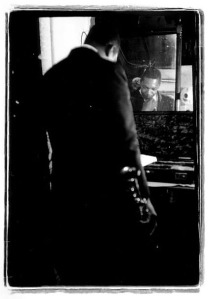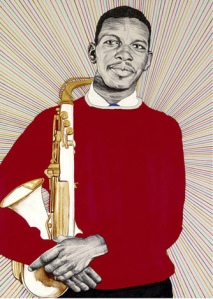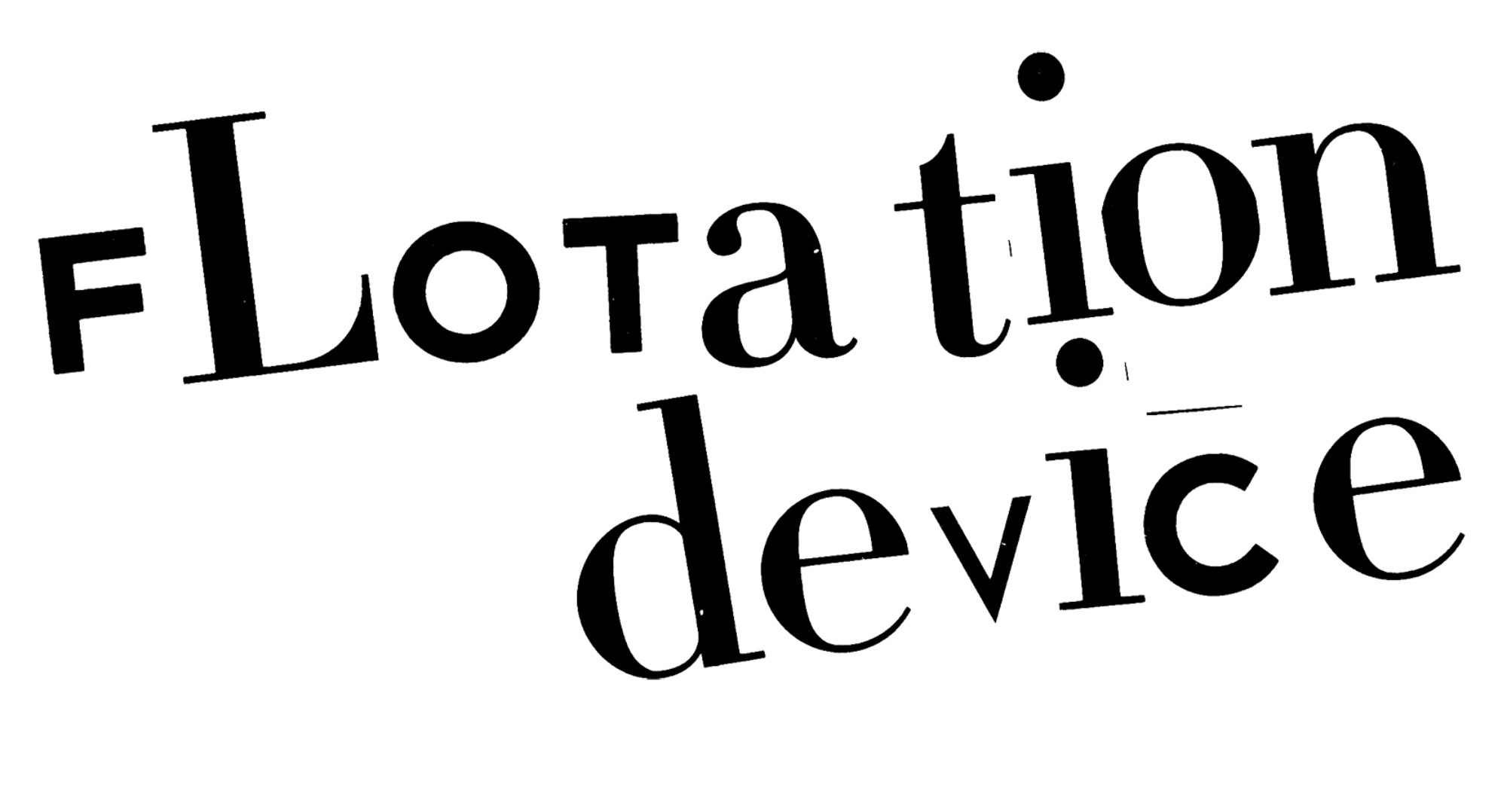 I recently finished reading a book that H got me for my birthday last year. Coltrane on Coltrane. It’s a collection of interviews conducted with Coltrane, interspersed with a few letters he wrote, some essays about Coltrane, and a few interviews with others about Coltrane. In short, it kicked my ass.
I recently finished reading a book that H got me for my birthday last year. Coltrane on Coltrane. It’s a collection of interviews conducted with Coltrane, interspersed with a few letters he wrote, some essays about Coltrane, and a few interviews with others about Coltrane. In short, it kicked my ass.
What’s remarkable to me, is that back in the day, as early as the late 50’s, people were already commenting on his, “angry tone.” The violence and frustration expressed in his playing and by his playing. And shortly thereafter his supposed “antijazz”-ness. It’s hard to imagine a time when this music was considered controversial. When the tone of his saxophone was considered a threat. When his music was considered to be strictly angry and violent. When I listen to him, I hear joy. Not that his music doesn’t travel the darker emotional spectrum – anger, sorrow, frustration, etc. But, what I hear, and have always heard, since I got into him, is a joy of life. A joy to be playing, to be expressing himself and his life experience through music. A joy to be communicating with other musicians, audience members, his loved ones, with his music. That’s what I’ve always heard.
It seems like such a bizarre thing for a music critic to be so locked in to what a music should be. Like there is a specific set of rules and guidelines for a style to be considered a style. And when something or someone transgressive comes along and pushes the boundaries and makes a combination of inspirations, the critic freaks out and complains about what they see as being untrue – a false version of what the critic critiques. If anything it should be the critic who is most open to change, most open to looking at the big picture of what’s going on in current music in the context of what has happened in music and where things seem to be headed. This seems like it would be the most exciting aspect of being a critic, following these developments, following the new artists and hearing new sounds. But, at least at the time of Coltrane, this didn’t seem to be the case.
The critics seemed to be afraid. Afraid of the new sounds that they felt were conveying anger. Many of the critics were white men and as such, it’s possible they read what they read into the music based on their personal feelings about black musicians making political statements and commenting on their reality. It’s possible they felt threatened by this, like the musicians were challenging them, and that this was a bad thing. But, how small to feel threatened as a music critic, as if the musicians were playing only for the critics and commenting on their communities’ realities only for the benefit of the critics. They took it as a personal attack on them when the music began to change.
One thing I thoroughly enjoyed was that Coltrane calmly responded to some of his most vehement critical detractors by saying simply, let’s talk. He kept saying if anyone has a problem with what he was playing, if they didn’t understand where he was going and what he was doing, then they could just talk to him about it, ask him their questions directly. Unfortunately no one took him up on this. But, I loved that he even though he was hurt, he didn’t attack them, he just said that what he was doing made sense and he would be happy to explain it.
 For a long time I wasn’t into Coltrane. I knew he was associated with Miles Davis. And I’ve never been a fan of Miles Davis – way too boring for my taste. So, I always assumed that Coltrane was cut from the same cloth. Boring. Mellow. Not my thing. I was proven wrong only a few years ago when an acquaintance was shocked at my ignorance and convinced me to buy a used copy of A Love Supreme and let me borrow the Complete Village Vanguard box set. I went home, put on the albums, and was blown away. For some reason it all clicked. As soon as I heard the first notes of India I was hooked.
For a long time I wasn’t into Coltrane. I knew he was associated with Miles Davis. And I’ve never been a fan of Miles Davis – way too boring for my taste. So, I always assumed that Coltrane was cut from the same cloth. Boring. Mellow. Not my thing. I was proven wrong only a few years ago when an acquaintance was shocked at my ignorance and convinced me to buy a used copy of A Love Supreme and let me borrow the Complete Village Vanguard box set. I went home, put on the albums, and was blown away. For some reason it all clicked. As soon as I heard the first notes of India I was hooked.
There was something to the hypnotic smears of sound. The way Coltrane and Eric Dolphy play together weaving around each other. The groove of the group. The sheer emotion of that song. It destroyed me. It was one of those moments where I had to stop doing whatever I was doing and sit down and listen. Let the music flow over me. Surround me. I had to take it all in. Process what I was hearing and experiencing.
Maybe it was just a matter of me being in the right point in my life for this music. Beginning my search for what my life is, what my life should be, what my life means, and all the emotional and mental stress of what such soul searching causes. As I approached my 30’s and was saying goodbye to my past self, the young one, the inexperienced one, the one who didn’t think about mortality so much. The one who didn’t wake up to the fact that there would be one day where he would die. Where his body would go through the process of shutting down and letting go, either alone or leaving someone behind. I was beginning to wrestle with some heavy shit – non-religious atheistic spiritual crises.
Maybe I was picking up some of what Coltrane was putting out there in his music. His search for spiritual enlightenment. His search for universal truth. His faith in the goodness of humanity and in its capacity for love. Maybe I found something comforting in his music. Something that spoke to me and could help me figure out what I was going through.
Maybe.
Or maybe I had just listened to enough jazz and creative music over the past few years that my palate was finally ready to appreciate Coltrane. I was ready to move beyond the straight up skronk and get into what I perceived as a more traditional style. I had gone from the harsher beauty of thousands of Thurston Moore projects, the experimental explorations of the Art Ensemble, the screams of Arthur Doyle and dove back to Dizzy Gillespie, Eric Dolphy, and Mingus and returned with my ears and heart ready for something new to me. Whatever the reason, Coltrane has become one of my favorite artists. One of my desert island few. Someone I can never get tired of no matter how many times I listen to his records.

